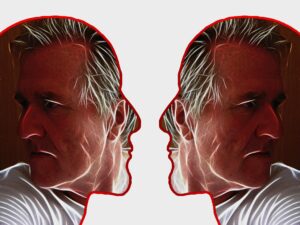Are you or someone you know struggling with Obsessive-Compulsive Disorder (OCD)? As a hypnotherapist based in the UK, I understand the challenges that come with this condition.
I want to share with you the power of Hypnotherapy, Neuro-Linguistic Programming (NLP), and Emotional Freedom Techniques (EFT) in providing relief from OCD symptoms.
We will explore the benefits of this integrated approach, which includes personalised care, holistic healing, and long-term results.
Discover how these techniques can help you overcome OCD and live a more fulfilling life.
Understanding Obsessive-Compulsive Disorder (OCD)
Having specialised in hypnotherapy for years, I aim to shed light on the complexities of Obsessive-Compulsive Disorder (OCD), a condition characterised by persistent anxiety, compulsive behaviours, and intrusive thoughts.
Individuals with OCD often experience repetitive thoughts that can lead to ritualistic behaviours aimed at alleviating their distress. These obsessions and compulsions can significantly impact daily functioning and relationships, causing immense psychological distress. OCD is closely linked to mood disorders such as depression and anxiety, further exacerbating the emotional toll on those affected.
One intriguing aspect of OCD is the role of the subconscious mind in reinforcing these patterns. Hypnotherapy and Neuro-Linguistic Programming (NLP) have shown promise in treating OCD by targeting the subconscious processes that drive these compulsive behaviours. By reprogramming deep-seated beliefs and thought patterns, individuals can gain control over their symptoms and experience lasting relief.

What Causes OCD?
Exploring the root causes of OCD unveils a complex interplay of triggers, psychological distress, and underlying factors that contribute to the manifestation of obsessive-compulsive behaviours.
These triggers can range from genetic predispositions that influence brain function to environmental influences that shape individual experiences and responses.
Stress triggers, such as traumatic events or significant life changes, can exacerbate OCD symptoms, further intensifying the connection between psychological distress and mood disorders.
Understanding the intricate relationships between these factors and their impact on an individual’s mental state is crucial in addressing OCD from a holistic perspective, where therapies like NLP and hypnosis may offer alternative approaches to traditional treatment methods.
The Power of Hypnotherapy
Delving into the realm of hypnotherapy unveils a powerful tool that taps into the subconscious mind to address deep-rooted issues such as OCD, offering a transformative journey towards healing and relief.
By harnessing the subconscious mind, hypnotherapy can reprogram thought patterns and behaviours that underlie obsessive-compulsive disorder. This approach delves beyond surface symptoms, diving into the issue’s root to effect lasting change. Through techniques like NLP and EFT, hypnotherapy enhances treatment outcomes by addressing the psychological distress and mood disorders often intertwined with OCD. This holistic approach alleviates symptoms and promotes mental well-being and emotional stability, guiding individuals towards a more balanced and fulfilling life.
Embracing Neuro-Linguistic Programming (NLP)
Neuro-Linguistic Programming (NLP) offers a unique approach to understanding and modifying behaviours associated with OCD, enabling individuals to reprogramme their subconscious patterns for lasting change and freedom.
By diving into the core of one’s thought processes and language patterns, NLP focuses on behavioural modification by reshaping how individuals perceive and respond to obsessive-compulsive tendencies. Through techniques like hypnotherapy and Emotional Freedom Technique (EFT), NLP enhances self-awareness and enables individuals to break free from the cycle of compulsive behaviours.
This holistic approach not only addresses the symptoms of OCD but also targets the root causes, offering a comprehensive strategy for conquering the challenges associated with this condition.
Utilising Emotional Freedom Techniques (EFT)
Emotional Freedom Techniques (EFT) present a powerful tool for individuals struggling with OCD, offering effective stress and anxiety management strategies that promote emotional release and holistic healing.
These techniques, infused with elements of hypnosis and tailored to address psychological distress, serve as a gentle yet impactful way to navigate through the intricate layers of one’s emotions and thought patterns. By tapping into specific acupressure points while focusing on distressing thoughts or memories, EFT helps individuals rewire negative thought patterns and cultivate inner peace and resilience. This holistic approach addresses the symptoms and targets the root causes, fostering long-lasting emotional well-being.
The Combined Effort of Hypnotherapy, NLP, and EFT
By integrating the transformative powers of hypnotherapy, Neuro-Linguistic Programming (NLP), and Emotional Freedom Techniques (EFT), individuals with OCD can embark on a comprehensive healing journey that addresses the multifaceted aspects of their condition.
- Hypnotherapy aids in accessing the subconscious to reframe negative thought patterns.
- NLP provides techniques to rewire cognitive processes and behavioural responses
- EFT offers a holistic approach by targeting the body’s energy system to alleviate emotional distress and promote mental well-being
Integrated OCD Relief Program:
The Integrated OCD Relief Programme offers a structured approach that includes assessment, customised hypnotherapy, NLP and EFT sessions, subconscious reprogramming, behavioural modification techniques, stress and anxiety management, as well as ongoing support and guidance.
Central to the programme is personalised care, where each individual’s unique needs and triggers are analysed and addressed. By tailoring the treatment plan to fit the client’s specific requirements, the programme ensures effectiveness and efficiency in combating OCD symptoms. This personalised approach is complemented by a holistic healing philosophy, focusing on alleviating symptoms and promoting overall well-being and mental health. Through the combined techniques of hypnotherapy, NLP, and EFT, clients experience profound shifts in mindset and behaviour, leading to sustainable improvements in their OCD management.
Assessment and Goal Setting
The initial phase of the Integrated OCD Relief Programme involves a comprehensive assessment and goal-setting process, ensuring personalised care tailored to the individual’s needs and desired outcomes.
Assessment plays a crucial role in identifying the specific symptoms and triggers of OCD, allowing the treatment plan to be precisely tailored. By understanding the individual’s unique challenges, clinicians can integrate hypnosis techniques and stress management strategies to address these issues effectively. Setting achievable goals during this phase is vital as it provides a roadmap for progress and helps track improvement over time. Customising care based on individual needs ensures that the therapy provided is effective and sustainable in the long run.
Customised Hypnotherapy, NLP, and EFT Sessions
Tailored hypnotherapy, NLP, and EFT sessions form the core of the Integrated OCD Relief Programme, offering personalised interventions that target specific OCD symptoms and promote lasting behavioural change.
These modalities are meticulously tailored to address the unique needs and triggers of each individual, ensuring a comprehensive and holistic approach to managing OCD.
- Through the power of hypnotherapy, individuals can explore subconscious patterns and reframe limiting beliefs that fuel compulsive behaviours.
In parallel, NLP techniques enable clients to rewire their thought processes, replacing negative thought loops with positive affirmations and strategies for managing intrusive thoughts.
EFT, with its focus on tapping into the body’s energy systems, assists in releasing emotional blockages and reducing the intensity of OCD symptoms.
Subconscious Reprogramming
Subconscious reprogramming lies at the heart of the Integrated OCD Relief Programme, enabling individuals to challenge and transform deep-seated patterns and beliefs that contribute to OCD symptoms and behaviours.
This process involves tapping into the power of the subconscious mind to overwrite negative thought patterns, replacing them with more positive and constructive ones. By utilising techniques from Neuro-Linguistic Programming (NLP) and stress management practices, individuals can rewire their brains to respond differently to triggers and stressors, leading to significant improvements in their OCD symptoms. Through consistent practice and dedication, subconscious reprogramming fosters lasting behavioural change and symptom relief, addressing the root causes of OCD and promoting overall mental well-being.
Behavioural Modification Techniques
Utilising behavioural modification techniques grounded in NLP principles, the Integrated OCD Relief Programme enables individuals to identify, challenge, and modify maladaptive behaviours associated with OCD, fostering positive change and growth.
By incorporating NLP techniques, individuals are guided to reframe their thoughts, beliefs, and habits, leading to profound shifts in behaviour patterns.
This approach targets the core of OCD symptoms, addressing underlying causes rather than just surface-level manifestations.
Through personalised strategies and continual support, participants learn to rewire their responses to triggers, ultimately reducing anxiety and enhancing their overall well-being.
Stress and Anxiety Management
Effective stress and anxiety management strategies, including Emotional Freedom Techniques (EFT), are integral to the Integrated OCD Relief Programme, promoting emotional release, relaxation, and overall well-being.
These techniques play a crucial role in addressing the psychological distress that often accompanies Obsessive-Compulsive Disorder (OCD), offering individuals a way to navigate their emotions healthily. By incorporating EFT into treatment plans, individuals are equipped with tools to release pent-up anxieties and fears, leading to a sense of relief and calm.
The holistic approach of this programme underscores the importance of addressing the mind-body connection. Practices like mindfulness, hypnosis, and other relaxation methods help individuals achieve a state of balance and reduce the impact of OCD symptoms on their daily lives.
Ongoing Support and Guidance
The Integrated OCD Relief Programme goes beyond treatment sessions to provide individuals with ongoing support and guidance, ensuring continuity of care and a comprehensive approach to long-term OCD management.
Incorporating elements like hypnotherapy and NLP, this programme aims to address the root causes of OCD and equip individuals with coping strategies for sustained progress. Ongoing support is vital in reinforcing the therapeutic tools acquired during treatment sessions.
When facing the complexities of OCD, having a reliable support system can make all the difference. The guidance helps individuals navigate challenging moments and focus on their recovery journey.
This holistic and integrated approach acknowledges that OCD requires more than just episodic treatments; it demands consistent care and personalised strategies tailored to each individual’s needs.
Benefits of the Integrated Approach
The integrated approach of the OCD Relief Programme offers a range of benefits, including personalised care, holistic healing, and the potential for long-term results in managing OCD symptoms effectively.
Personalised care is at the programme’s core, tailoring treatment plans to address each individual’s unique needs and preferences. This individualised approach fosters a strong therapeutic alliance between patients and therapists, fostering trust and collaboration.
The emphasis on holistic healing ensures that patients receive comprehensive care that addresses mental, emotional, and physical well-being. This integrated approach acknowledges that OCD symptoms often manifest in various aspects of a person’s life.
Sustained long-term results are achievable through this method by focusing on symptom management and building resilience and coping strategies for the future.
Comprehensive Treatment
The comprehensive treatment offered through the Integrated OCD Relief Programme encompasses a multifaceted approach that combines hypnotherapy, NLP, and EFT interventions to address the diverse needs of individuals struggling with OCD.
By integrating these various therapeutic modalities, the programme aims to delve deep into the subconscious mind to uncover and reframe underlying beliefs and thought patterns contributing to obsessive-compulsive behaviours. The treatment plan takes into account the presence of any co-occurring mood disorders, ensuring a holistic approach to mental wellness. This focus on individualised care tailors interventions to each person’s unique challenges, fostering a supportive environment conducive to long-term recovery.
Personalised Care
Personalised care lies at the core of the Integrated OCD Relief Programme, ensuring that treatment plans are tailored to meet the unique needs, preferences, and goals of each individual seeking relief from OCD symptoms.
Through this individualised approach, healthcare providers can delve deeper into the root causes of OCD symptoms, allowing them to design targeted interventions that address the specific triggers and thought patterns unique to each person.
Integrating techniques such as hypnotherapy and NLP into the treatment plan allows individuals to experience a more focused and effective therapeutic process designed to cater to their needs and challenges.
Holistic Healing
Holistic healing forms the foundation of the Integrated OCD Relief Programme, emphasising the interconnection of mental, emotional, and physical well-being in addressing OCD symptoms and fostering overall relief and balance.
At the core of this approach is the belief that treating OCD goes beyond just alleviating the surface symptoms; it involves delving deep into the root causes and underlying imbalances. By focusing on enhancing overall well-being and restoring harmony within the mind and body, individuals can experience lasting relief and reduction in the severity of their OCD manifestations.
Long-Term Results
The Integrated OCD Relief Programme aims to deliver long-term results by providing individuals with sustainable relief, effective symptom management, and tools for ongoing OCD management and well-being.
One key aspect of this programme focuses on enabling individuals to take charge of their mental health through hypnosis sessions, which have shown promise in alleviating anxiety and obsessive thoughts.
Plus, therapy and stress management techniques are integrated to help individuals develop coping mechanisms and build resilience against triggers that exacerbate OCD symptoms.
By equipping individuals with a range of tools and techniques, such as cognitive-behavioural strategies, mindfulness practices, and support networks, the programme aims to provide a holistic approach to managing OCD for sustained progress and well-being.
Conclusion
The integrated approach of the OCD Relief Programme, combining hypnotherapy, NLP, and EFT, offers a transformative path towards managing OCD symptoms, promoting holistic healing, and fostering long-term well-being.
- This synergistic approach addresses the root causes of OCD, leading to more sustainable results.
- Hypnotherapy helps rewire negative thought patterns, while NLP provides tools for behavioural change, and EFT offers emotional release techniques.
Through this integrative methodology, the OCD Relief Programme enables individuals to cultivate resilience, enhance self-awareness, and reclaim control over their lives.
Frequently Asked Questions
How can hypnotherapy, NLP, and EFT help me be less OCD?
These techniques can help you reprogram your subconscious mind, release limiting beliefs, and manage your emotions and behaviours, leading to a reduction in OCD symptoms.
Can hypnotherapy, NLP, and EFT completely cure my OCD?
While these techniques have been proven to be effective in reducing OCD symptoms, it is important to note that every individual responds differently to treatment. It is best to seek professional guidance to determine the most appropriate course of action for your specific situation.
What is the difference between hypnotherapy, NLP, and EFT?
Hypnotherapy uses the state of hypnosis to access the subconscious mind and create positive changes. NLP (Neuro-Linguistic Programming) connects thoughts, language, and behaviours to reprogram the mind. EFT (Emotional Freedom Techniques) involves tapping specific meridian points to release emotional and physical tension.
How many sessions of hypnotherapy, NLP, and EFT will I need to see results?
The number of sessions needed varies for each individual and depends on the severity of your OCD. Typically, you may see significant improvements in 3-6 sessions. Still, continuing the techniques and working with a trained professional is important to maintain your progress.
Are there any risks involved with hypnotherapy, NLP, and EFT?
These techniques are safe and non-invasive and have been used for years to help individuals with various conditions. However, suppose you have a history of mental health issues. In that case, consulting with a trained professional is important before starting any treatment.
Is it necessary to combine all three techniques to see results?
While each technique can be effective, combining all three may at times have a more significant impact. Discussing your options with a trained professional to determine the most effective approach for your needs is best.









